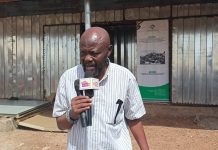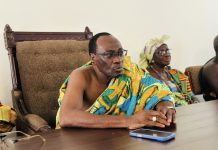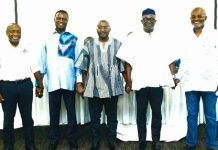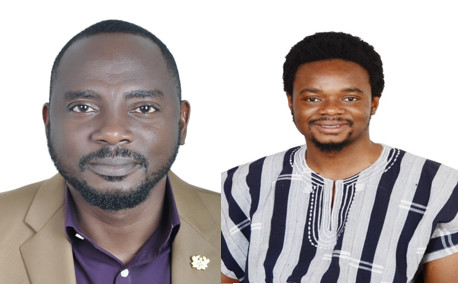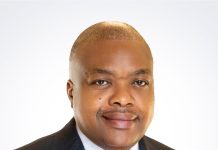The recent incident of dead fish and live dolphins washed ashore at different coastal areas of Ghana was attributed to several factors. The fisheries commission preliminary investigations indicated that stress factors were the cause; with the exact stress factor still unknown.
Some researchers also remain optimistic that oil spillage may have caused such an incident. University of Ghana’s Department of Marine and Fisheries Sciences reported that low oxygen concentration on the ocean bed led to the incident.
All these reports can lead to ecosystem stress factors, but yet, concluding at an exact known cause for preventive measures now and in the future is key. It is academically correct to also argue that the time of sample collection may have altered findings, thereby resulting in varied conclusions. However, and not concentrating too much on the academic aspect, but rather practical, proactive measures are required in safeguarding marine ecosystems.
How practical and proactive can we be? Citing a few promises made, in welcoming the new marine vessel RV Dr. Fridtjof Nansen owned by the Norwegian Agency for Development Cooperation (NORAD) in 2017, the President promised and we quote “Government intends to acquire its research vessel no of the size of the Fridtjof vessel though, to help in monitoring our fish stock”.
In another report by Ghana Business News (GBN) on March 10, 2018, Ghana Industrial Trawlers Association (GITA) called on the Fisheries Commission and the Ministry of Fisheries and Aquaculture to acquire a Marine Research Vessel (MRV) to obtain marine data for policy implementations. Despite the numerous calls on Government, Ghana, a country with about three oil drilling wells, does not own an MRV in safeguarding marine ecosystems.
This is very wearisome because Ghana’s drilling wells make millions of dollars per annum. Maybe we are waiting to be gifted an MRV to call our own. If we intend to acquire one by ourselves, why not levy all the drilling and exploration companies? Perhaps, we do not see an MRV as useful in protecting marine ecosystems.
The Centre for International Maritime Affairs Ghana (CIMAG) is deeply appalled by the unanswered calls from stakeholders in acquiring MRV. To support a blue economy, and at a time where we are eagerly looking to increase our reliance on the ocean in terms of resources and economic growth; and at this juncture where addressing climate change comes to play, Ghana cannot diminish our ability to conduct marine research. Troubled by this, we take it upon ourselves to address how beneficial acquiring MRV would help boost our marine ecosystems. MRVs are essential infrastructure for the scientific understanding of the ocean and marine ecosystems.
Research vessels and their equipment are one of the most reliable means we have of accessing diverse marine environments to conduct research. The sustainability of the blue economy plays an instrumental role in the changes facing the globe, and developing our understanding of marine ecosystems is far more crucial than ever.
Marine research infrastructures are critical for supporting the continued development of marine scientific evidence. Specifically, in offshore and coastal regions, MRVs play a crucial role in obtaining experimental, observational, and monitoring data. Marine data are critical in assessing how our ocean environments operate and increasingly, how those operations affect global climate change.
However, acquiring an MRV for marine research is only a first step to being proactive in preventing catastrophes in our marine environment. Human capital plays a major factor. Excellence in marine research should be a criterion on which access to MRV is decided. Transitional access mechanism to the MRV coupled with appropriate funding is strongly encouraged. The recent scientific and technological advancements will render vessel operations in research more complex.
Taking into consideration that the deep-sea ecosystems are presently understudied, there may be a potential insufficient baseline knowledge of biodiversity and ecosystem functioning required for deep-sea ecosystem-based management. Therefore, there should be continuous and dedicated training opportunities as well as closer collaboration with stakeholders to ensure marine research compliance.
In conclusion, investment in MRV, as well as marine research, is a justifiable means of being proactive and preventing future catastrophes in our marine ecosystem.
NB: For the full report, contact Mr Albert Derrick Fiatui. Email: albert@cimaghana.org
Authors:
ALBERT Fiatui: Executive Director of CIMAG, maritime industry expert, LLB in law (albert@cimaghana.org)
BISMARK Ameyaw (Ph.D.): Energy economist, CIMAG’s board member, Climate change activist (bameyaw23@gmail.com)

